Sodium bicarbonate has been used for years in cycling to supplement performance. Being alkaline, it counteracts rising acidity levels in the muscles, which cause fatigue during intense exercise.
Sodium bicarbonate (also called baking soda or bicarbonate of soda) is typically consumed dissolved in water or in the form of capsules.
But not without potentially disastrous gastrointestinal (GI) consequences – think skin-suited track sprinters rushing to the toilet minutes before the start of a race.
Now Maurten has devised a new way of ingesting bicarb. A gel coating helps tiny bicarbonate capsules pass into the intestine. Bicarbonate in the form of solution and, to a lesser extent, standard capsules tends to break down in the stomach, triggering GI issues.
The sports nutrition brand says its Maurten Bicarb System, used by WorldTour teams, eliminates GI upset in most athletes while improving performance.
Maurten claims the Bicarb System’s effectiveness extends beyond explosive cycling events, where bicarbonate’s benefit is well established, into four-to-five hour road races.
Do Maurten’s claims stand up to scientific scrutiny? Can bicarb make me go faster, not just to the toilet?
I participated in the first independent trial of the new product by Birmingham City University to find out.
I asked sports nutritionist Ellen McDermott, from McD Nutrition, and High North Performance coaching’s Dr Emma Wilkins and Tom Bell for their interpretation of the study results.
How does sodium bicarbonate improve performance in high-intensity exercise?
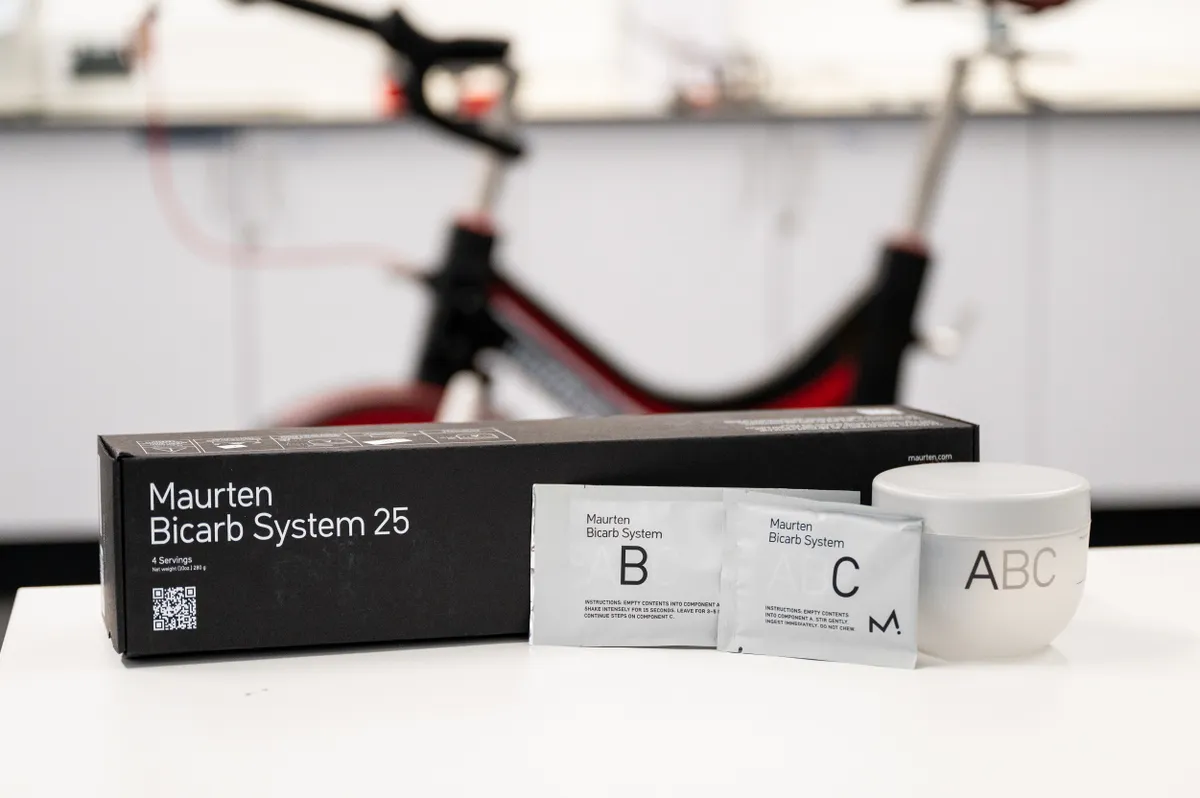
Maurten’s head of nutrition Tobias Christensson says: “It’s been known for decades that bicarbonate works.
“It rests on very solid scientific evidence that if you ingest bicarbonate, you can increase the acid base balance, or you can have a higher alkalosis or you increase your buffering capacity.”
Your buffering capacity is your ability to flush away metabolic waste products that muscles produce at a faster rate during intense efforts (zone 5 and above of your training zones).
Eventually, these by-products of anaerobic energy production can no longer be buffered by the blood quicker than the muscles produce them.
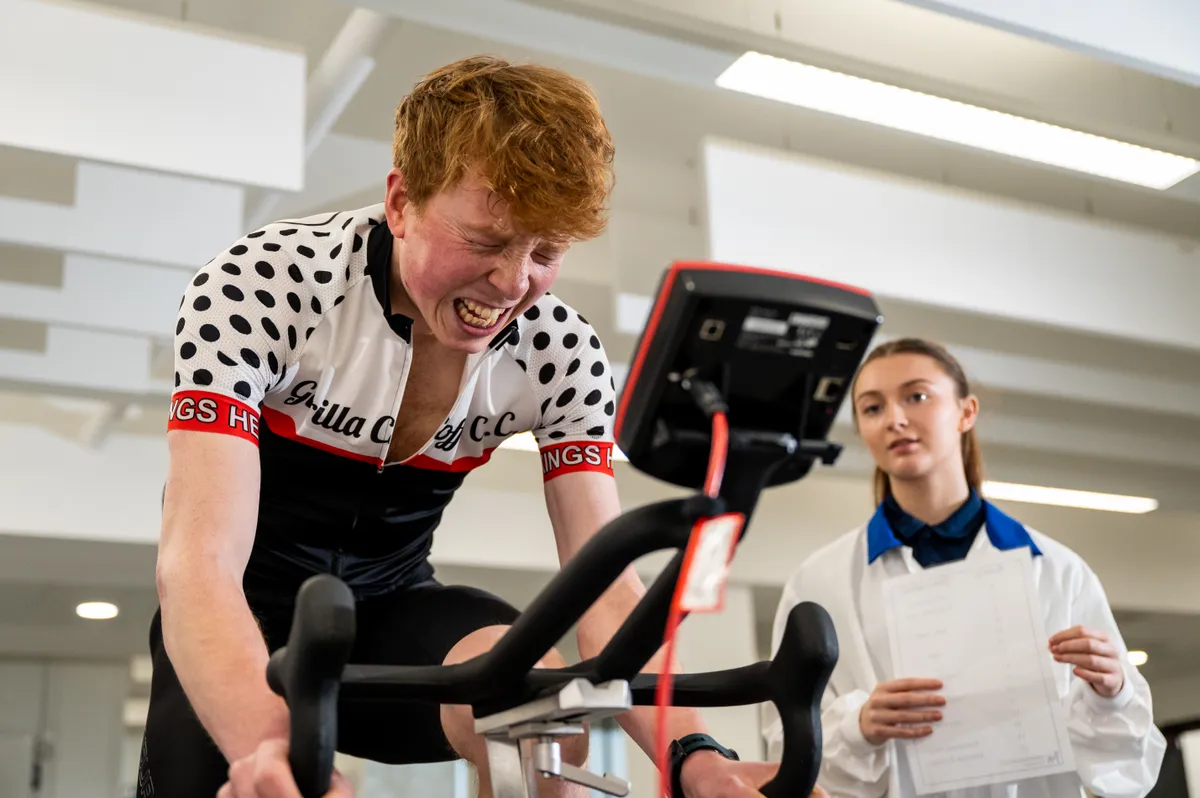
Their build-up (not of lactate, which can be used as fuel) causes metabolic acidosis (excessive acid levels, which impair the muscles’ ability to contract). This contributes to fatigue and then exhaustion within three to eight minutes of all-out effort.
For sodium bicarbonate to work, blood bicarbonate (HCO3-) must rise to neutralise acidic hydrogen ions (H ), and maintain muscle pH.
Delayed muscle acidosis enables you to produce a higher power output for longer.
Ellen McDermott says: “Reviews and studies have shown that there are performance benefits of bicarbonate in durations from 30 seconds up to 12 minutes.”
Dr Emma Wilkins and Tom Bell say the athletes they coach have occasionally used sodium bicarbonate for its performance-enhancing effects. And Bell, a UK National Hill Climb Champion, has used it himself.
What is the Maurten Bicarb System?
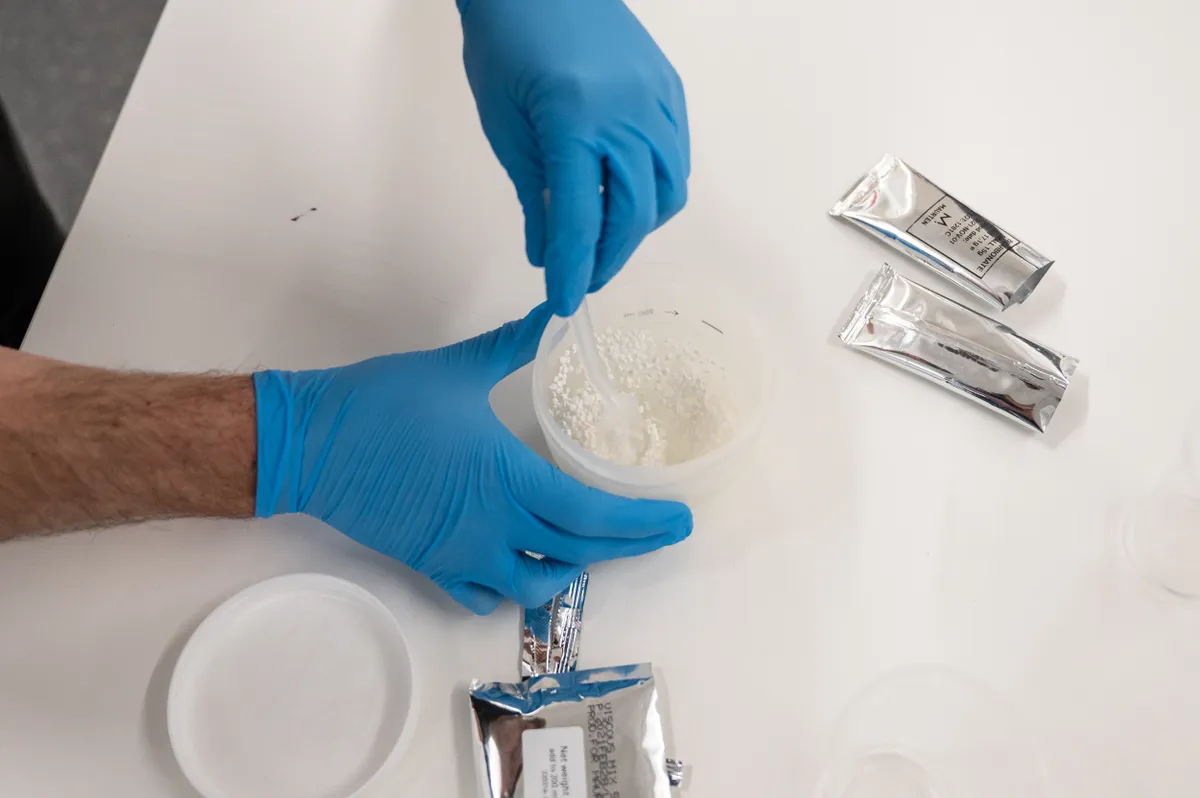
The commercially available Maurten Bicarb System consists of a mixing bowl, hydrogel (containing 40g of carbohydrate) and bicarbonate.
The price varies according to the dosage required. For example, a medium dose for a 75kg athlete costs £60/$65/€64.40 for four servings. Maurten recommends one serving per training session or race.
To consume, you mix the hydrogel and tiny bicarbonate tablets together in the bowl. You then eat the contents, ensuring you swallow the tablets whole.
How does the Maurten Bicarb System work?

According to Christensson, Maurten started developing the Bicarb System in 2020.
The goal was to capture the performance-enhancing effect of bicarbonate in a form more people’s stomachs could tolerate.
Its scientists used the brand’s existing Hydrogel technology, which it claims enhances carbohydrate absorption from its energy gels and drinks, and mimicked drug delivery techniques from the pharmaceutical industry.
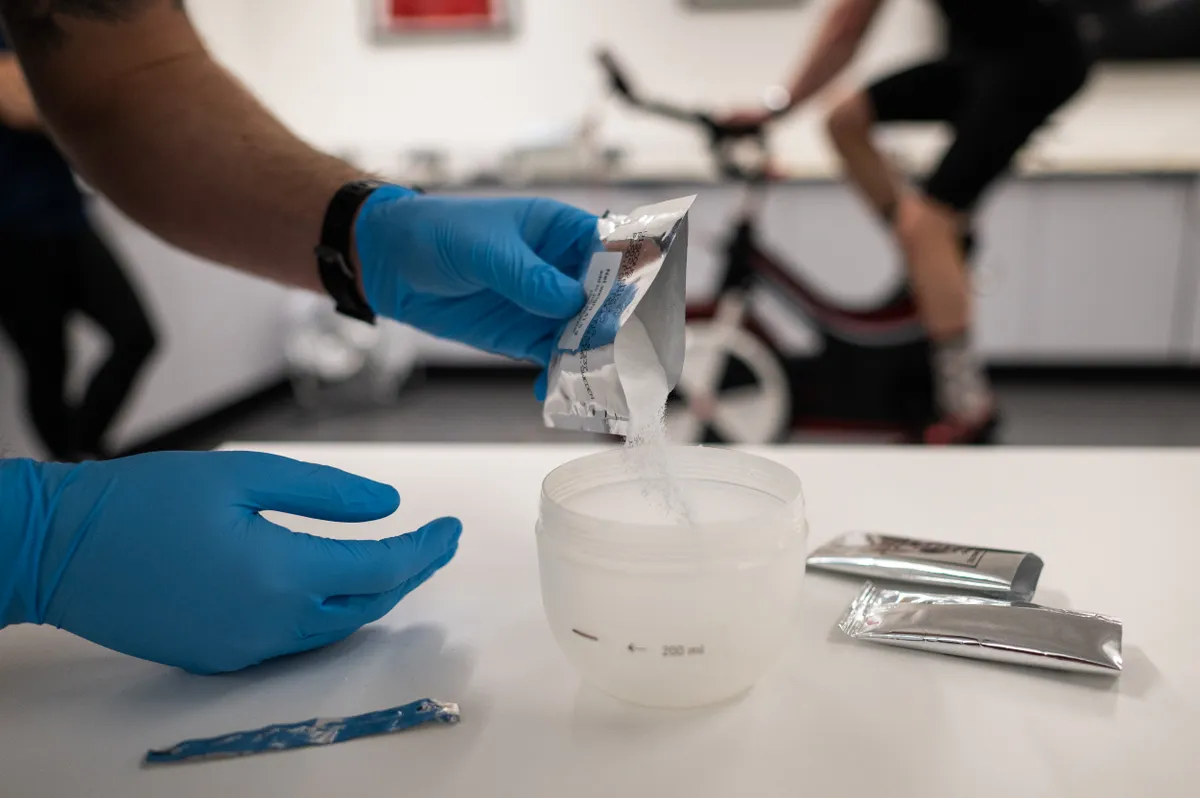
The result, Christensson says, was “a much more sophisticated delivery system of bicarbonate than existing methods”.
Bicarbonate capsules often break down before they pass out of the stomach into their desired destination of the intestine.
Christensson says: “The hydrogel works as a vehicle or a delivery method, which protects the mini tablets from getting exposed to the gastric acid in the stomach.”
Maurten also claims the tablets’ small size slows down the release of bicarbonate in the intestine, lowering the risk of stomach upset and prolonging the supplement’s effect.
Who uses the Maurten Bicarb System?

The company’s scientists tested the Bicarb System on themselves during the coronavirus pandemic.
Once competitive sport restarted, Maurten gave the product to its sponsored athletes.
Christensson claims the Bicarb System was widely used at the Summer and Winter Olympics in 2021 by everyone from wrestlers to middle-distance runners.
As discussed, a weight of scientific evidence supports the use of bicarbonate in short, intense bouts of exercise.
But Christensson argues bicarb also has a role to play in endurance sports such as road cycling.
Jumbo-Visma's men’s and women’s teams were one of the earliest adopters of the Bicarb System at their training camp in early 2021, he says.
Maurten sponsors seven men’s and women’s WorldTour teams, including Uno-X, Canyon-SRAM and SD-Worx, who also use the product, according to Christensson.
He says individual riders on teams not sponsored by Maurten buy the Bicarb System themselves.
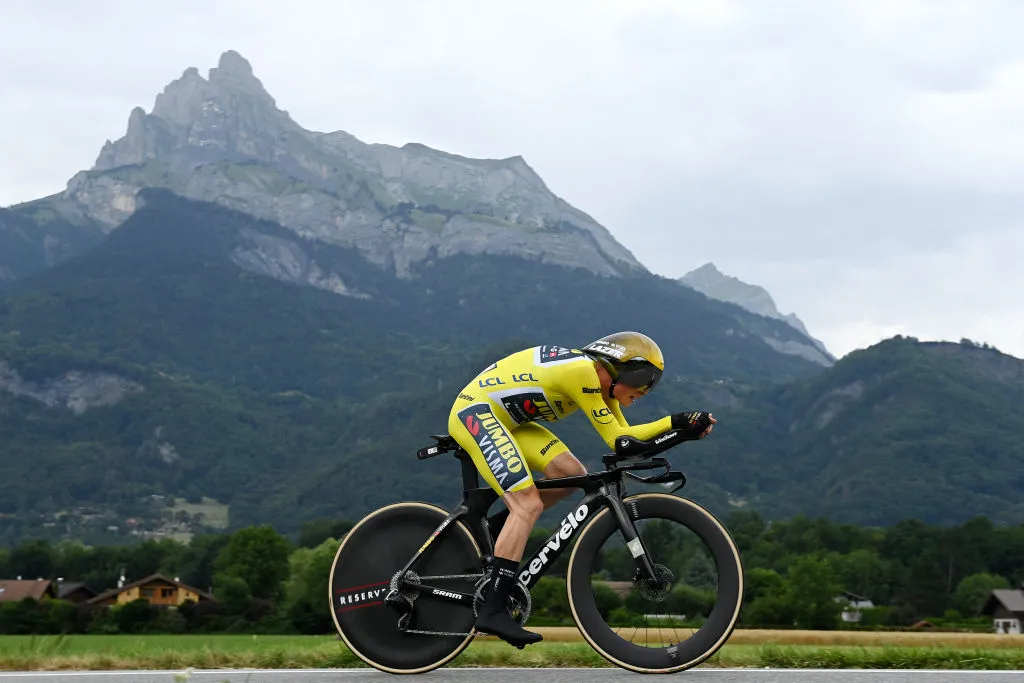
He adds: “In road cycling races, there are multiple one-to-eight minute intense efforts.
“I cannot share the names, but a few stage winners during the Tour de France have used it [the Bicarb System] for longer stages.
“For example, a rider can use it before the race starts and then have the benefit four or five hours later in a sprint finish or mountain finish.”
Some experts we’ve spoken to are sceptical about this claim (more on this later).
And Maurten’s head of nutrition admits that it is not directly substantiated by independent scientific evidence.
He draws this conclusion from Maurten’s own blood data and evidence from an independent trial by researchers at the Birmingham City and Edge Hill Universities.
I’ll run through the study I took part in now.
How was the trial designed?
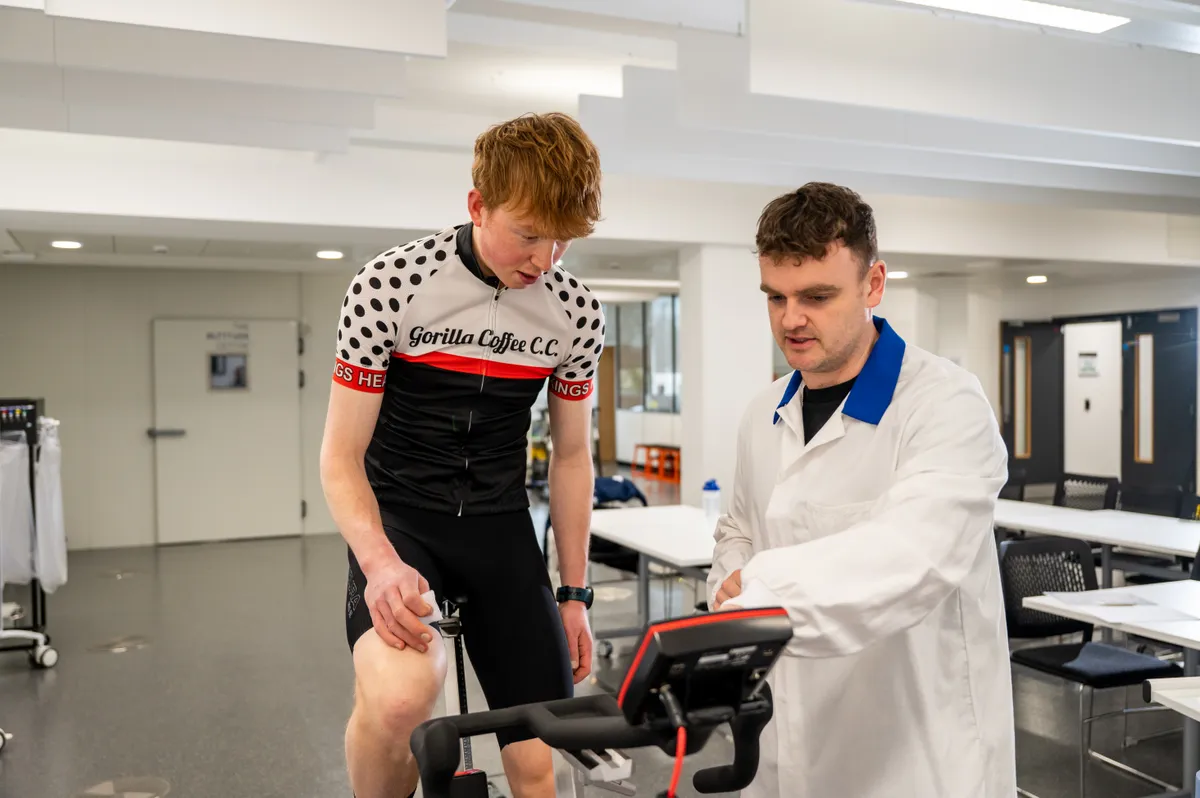
Dr Lewis Gough of Birmingham City University has experimented with sodium bicarbonate for years.
Previous study participants include members of the HUUB Wattbike track team, such as former UCI Hour Record Holder Dan Bigham and Jacob Tipper.
His trial called “The effects of different forms of sodium bicarbonate on cycling time-trial performance” was funded by Maurten, but the brand had no direct involvement.
Dr Gough recruited 10 club-level cyclists, including myself, to independently test the Maurten Bicarb System.
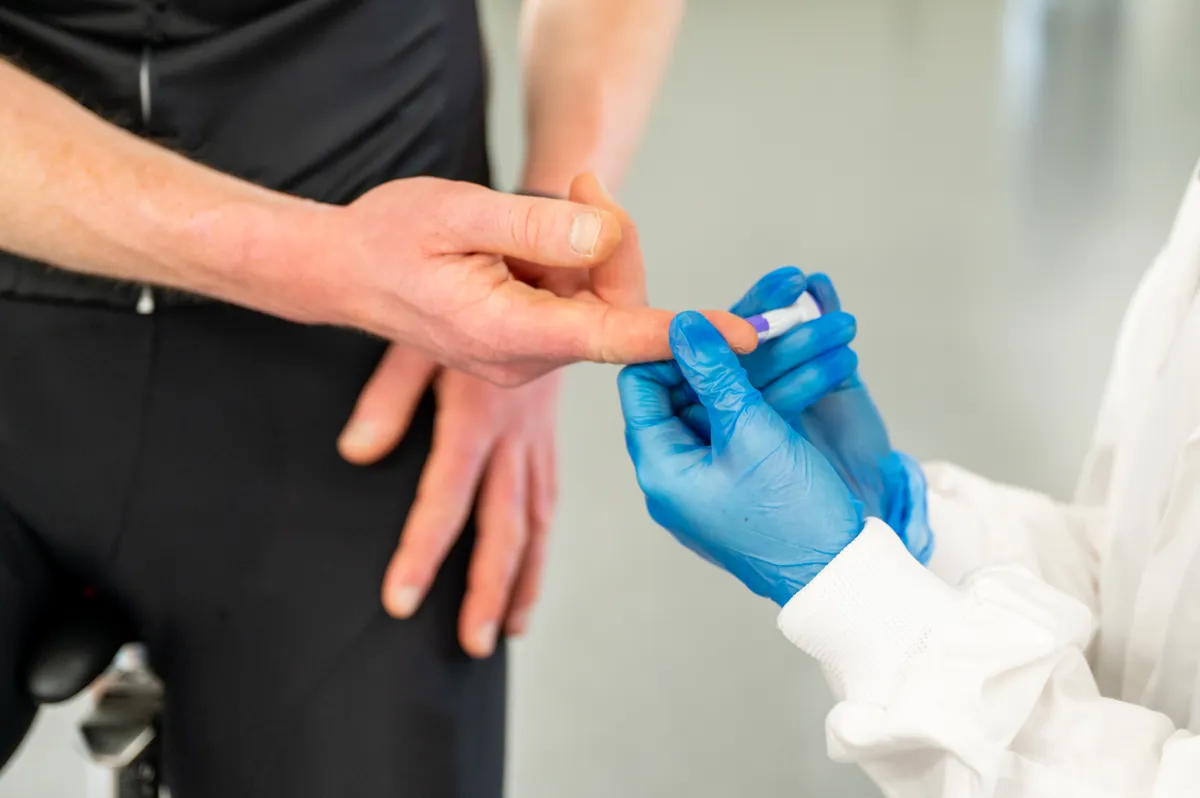
First, Dr Gough tested the time they took to reach peak levels of bicarbonate. He asked them to consume sodium bicarbonate as Maurten’s supplement and in capsules on separate occasions. He monitored their blood bicarbonate levels for up to four hours afterwards.
The athletes subjectively reported side effects, such as thirst, bloating and stomach upset, after taking the sodium bicarbonate capsules.
The findings informed Dr Gough when the volunteer should time their bicarbonate intake in order to receive maximum benefit. On average, it took between 1.5 and 2 hours.
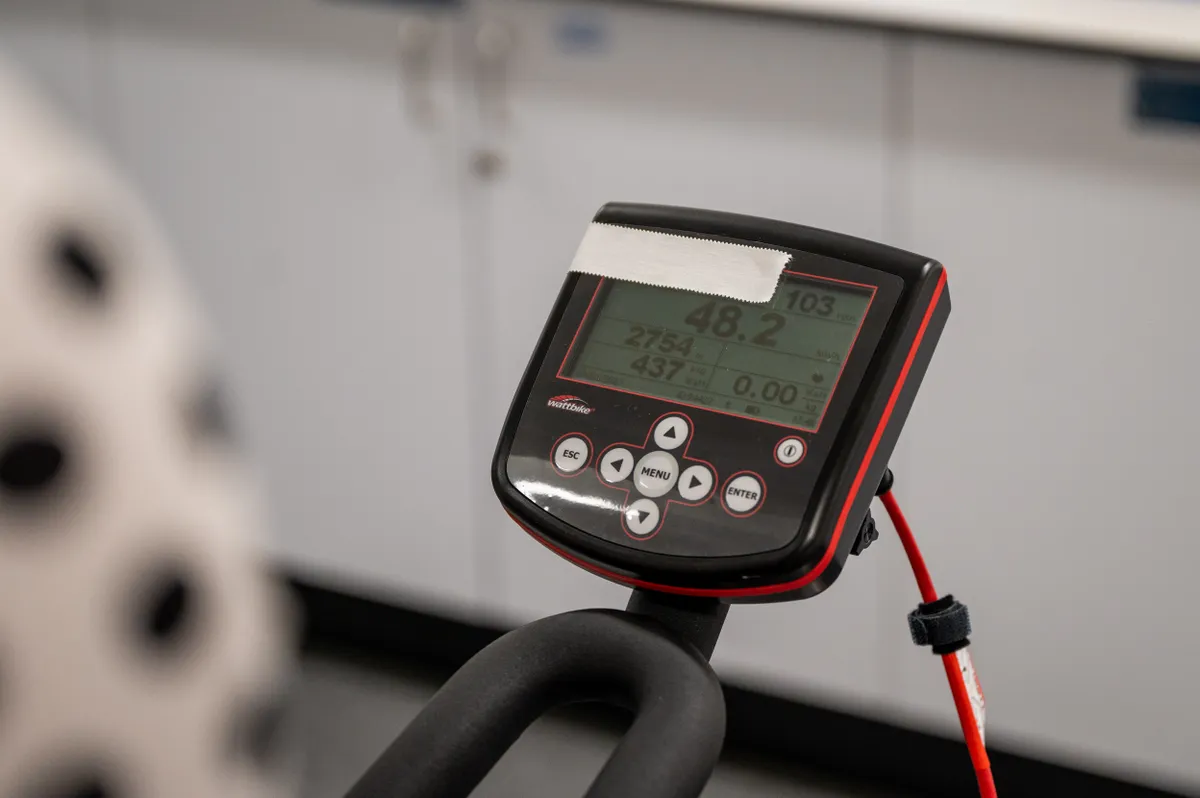
On another day, the volunteers did two flat-out 4km time trials on a Wattbike in the lab to get used to the equipment and exertion. They rested for 45 minutes between efforts.
In this control trial, they didn’t consume any bicarbonate, only a high-carbohydrate meal before.
Participants replicated this meal ahead of two more sets of time trials, having ingested either a placebo of sodium chloride capsules or the Maurten Bicarb System.
In a double-blind design, neither the volunteer nor Dr Gough knew which one they had taken.
What did the trial find?
A higher, faster peak

The Maurten Bicarb System produced a higher and faster overall blood bicarbonate peak than sodium bicarbonate capsules.
Among the volunteers, the mean absolute change in HCO3- was 8.2mmol/l from the Maurten product versus 6.7mmol/l from the capsules.
The mean time taken for blood bicarbonate to peak was 128 minutes with Maurten and 155 minutes with the capsules.
Less stomach upset
The Maurten Bicarb System caused dramatically less stomach trouble than the sodium bicarbonate capsules.
Dr Gough calculated an 'aggregated GI distress score' based on the volunteers’ own assessment of their symptoms, from stomach ache to belching.
Participants reported similar levels of thirst from the capsules and Maurten product.
But the capsules scored 181 for stomach ache, 149 for diarrhoea, and 56 for nausea compared to 14, 0 and 7 respectively for the Maurten Bicarb System.
Better on-bike performance
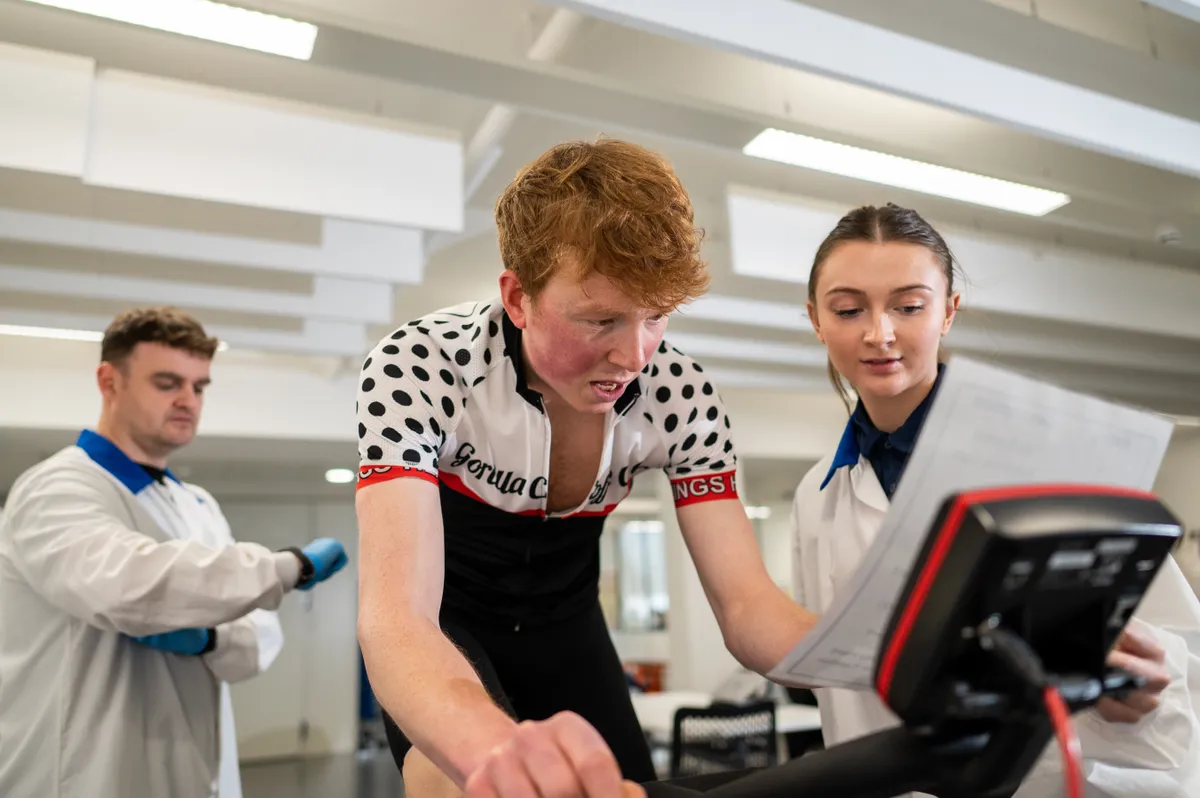
Compared to the control of a high-carbohydrate meal and a placebo supplement, Maurten Bicarb System enhanced the 4km time-trial performance of most participants.
Two participants didn’t get any performance benefit, but did reduce their GI issues.
The mean improvement in the first 4km TT with Maurten was 3.5 seconds versus the placebo, and 5 seconds versus the control, respectively.
While in the second identical effort, Maurten improved performance by 4.1 seconds versus placebo, and 4.4 seconds versus control, respectively.
How did I get on?
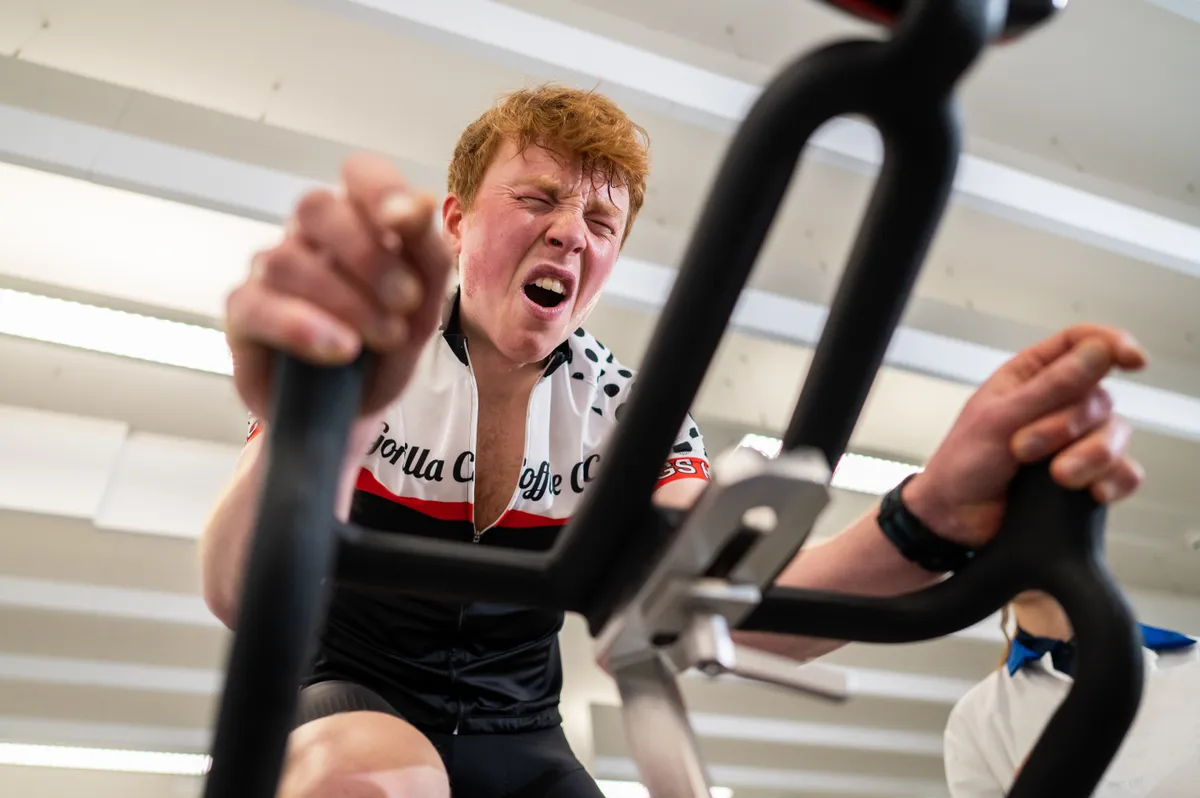
My performance improved by approximately five seconds in the first 4km TT effort and seven seconds in the second versus the placebo and control trials, respectively.
According to Maurten’s head of nutrition Tobias Christensson, my 1.67 to 2 per cent improvement with Maurten is double what elite athletes might expect (certainly the sole way my athletic performance exceeds that of Marianne Vos or Jonas Vingegaard).
I experienced some stomach ache from the standard bicarbonate capsules and thirst from the Bicarb System. So nothing as bad as some of my fellow participants.
The trial controlled for many external factors, such as freshness and fuelling, but the possibility remains I was on a better day when I took the Maurten Bicarb System.

I felt as fantastic as you can during two all-out 4km time trials. My legs didn’t tie up in the final kilometres. I felt my pacing was more consistent than in the placebo and control trials.
Unlike Geraint Thomas (more on him later), I didn’t experience a lack of grunt. Quite the opposite.
But I’m a club-standard rider and I only race occasionally in hill climbs, time trials and cyclocross.
So I’m definitely not Maurten’s target market with the Bicarb System.
And if I did want to use bicarbonate before competition, I could probably do so with ordinary capsules, which didn’t cause me gastric distress.
However, the experience of eating 20 or so paracetamol-sized capsules washed down by a pint of water isn’t that pleasant.
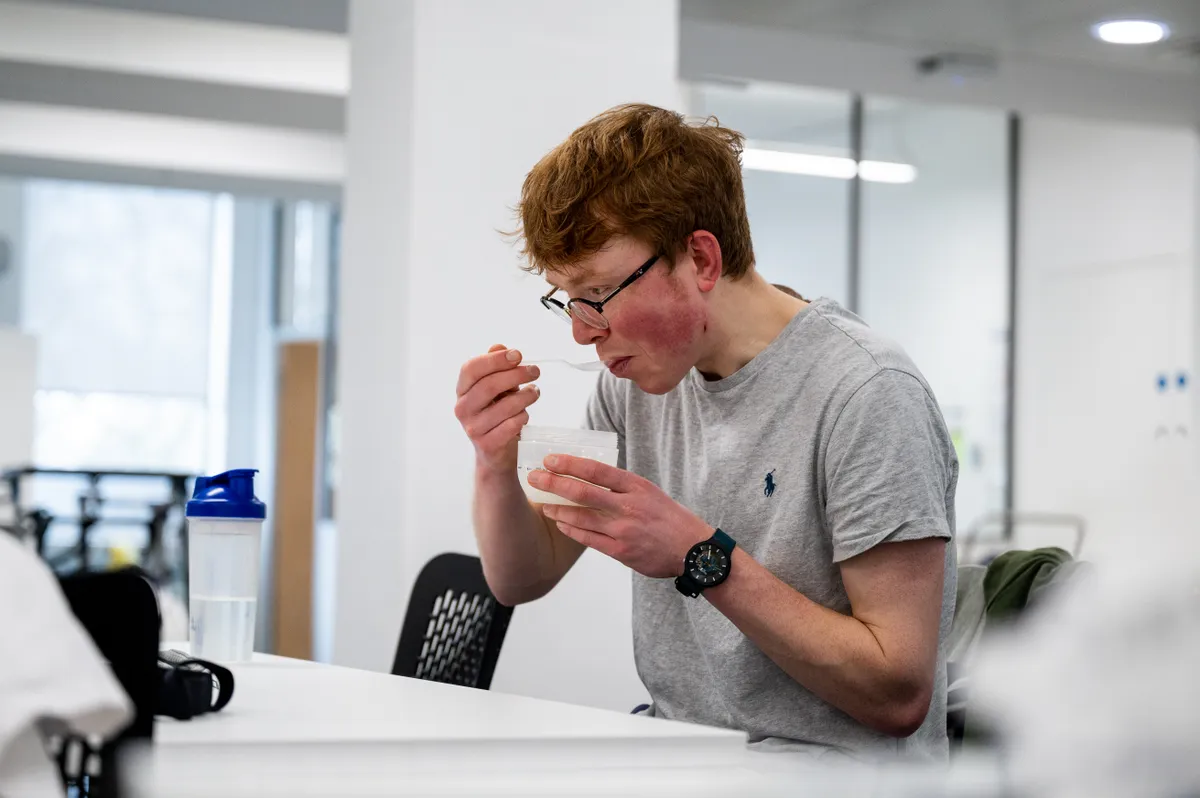
The texture and taste of the Maurten Bicarb System most resembles chia pudding. Forget it looks like frog spawn and it’s not too bad.
The fact it is portable and pre-prepared would be convenient for travelling to races.
No doubt the Maurten Bicarb System is expensive. But as with other effective training and nutrition strategies, the cost-to-benefit ratio is higher than many bike upgrades.
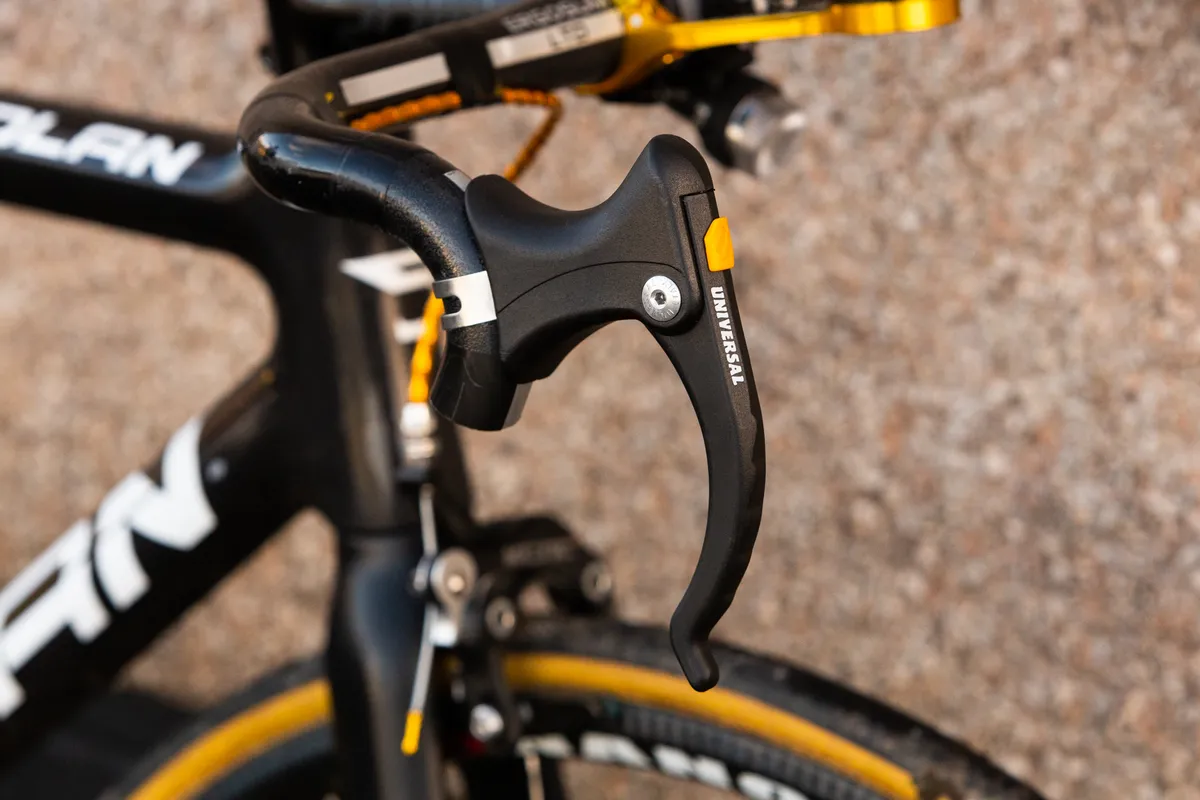
Even drastic weight-saving measures on hill climb bikes are unlikely to save you seven seconds over five minutes, which bicarb did for me.
A two per cent improvement (nine seconds) would have elevated me 20 places in the UK National Hill Climb Championships last year. That’s not to be sniffed at.
Will you see me popping bicarb pills while signing on at races this season then? I doubt it.
For a rider of my standard, I don’t feel it’s worth the cost or effort. I’ll stick to my preferred performance enhancer of double espresso.
That’s not to say, if you race at any level, you shouldn’t try bicarbonate.
What conclusions can we draw from the study’s findings?

Dr Gough called the trial a success, saying: “The key take home message is that GI discomfort was pretty much eliminated, however, performance was still improved.
“This could be a game changer for athletes who have struggled to ingest sodium bicarbonate for the last 30-plus years.”
Christensson draws a similar conclusion. He says it was “super important” that the Bicarb System alleviated the major GI problems four participants suffered from taking sodium bicarbonate capsules.
“These four really stick out and they’re the people we’re targeting,” he adds.
When bicarbonate capsules break down in the stomach before passing into the intestine, they are likely to cause GI problems.
The vegetarian capsules used in the trial are more likely to do this than enteric-coated bicarbonate capsules.
McDermott says: “I would have liked to have seen a study that compared enteric-coated capsules versus the Maurten with the placebo.
“Because then you’re comparing products that are trying to solve the same issue (of GI upset).
“It could have been a fairer test.”
However, the Bicarb System still causes some stomach discomfort.
Dr Emma Wilkins says: “This study shows that Maurten's new formulation significantly reduces (although doesn't entirely eliminate) the digestive risks of sodium bicarbonate.
“For example, the incidences of stomach ache were reduced from 181 to 14 with the Maurten formulation.”
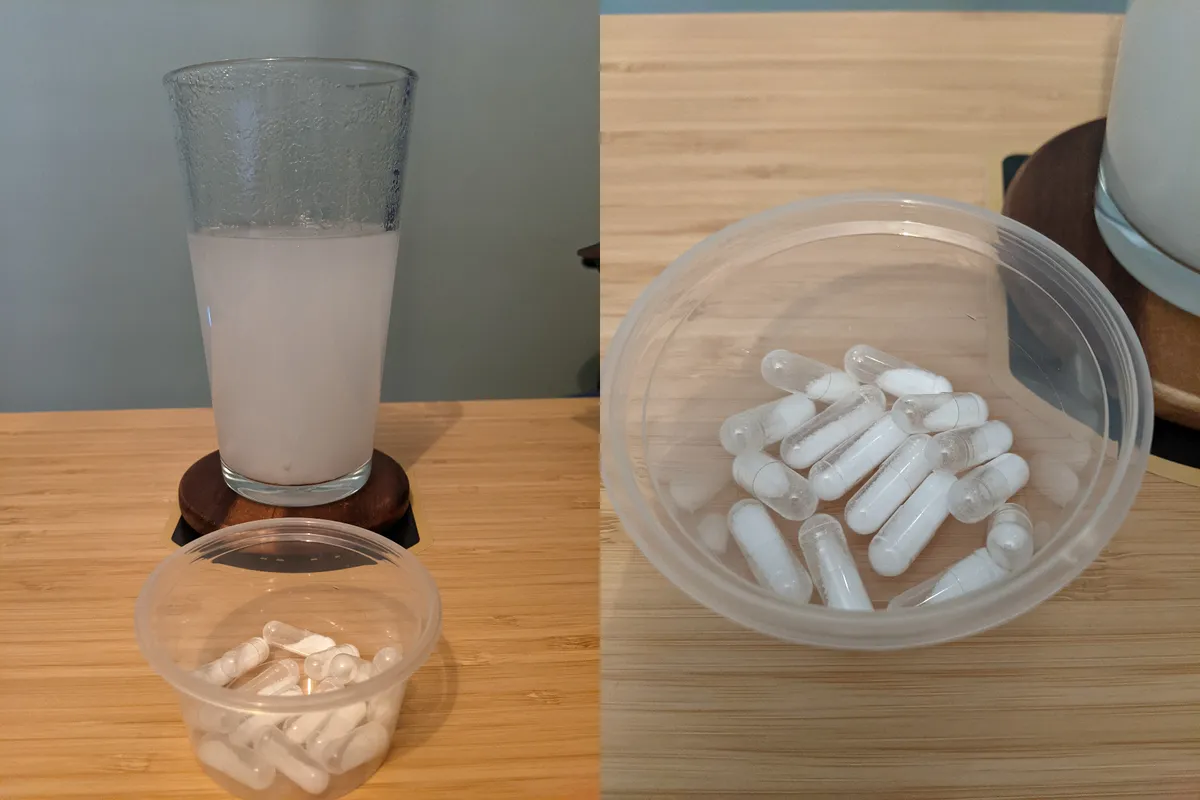
Incidentally, six other athletes reported similarly low levels of GI discomfort from both kinds of bicarbonate. This suggests they might not need to use the Maurten Bicarb System to boost their performance with bicarbonate.
The Maurten Bicarb System helped the athletes achieve a higher and faster peak of blood bicarbonate than capsules.
But McDermott says: “It is not that much higher to be of significance.”
The sports nutritionist wasn’t surprised by the performance improvement either. “That is what you expect to see,” she adds.
Dr Wilkins agrees, adding: “Despite the novel formulation, the sodium bicarbonate still performed as expected, and resulted in a small but practically meaningful performance improvement.”
Which cyclists can benefit from taking sodium bicarbonate?
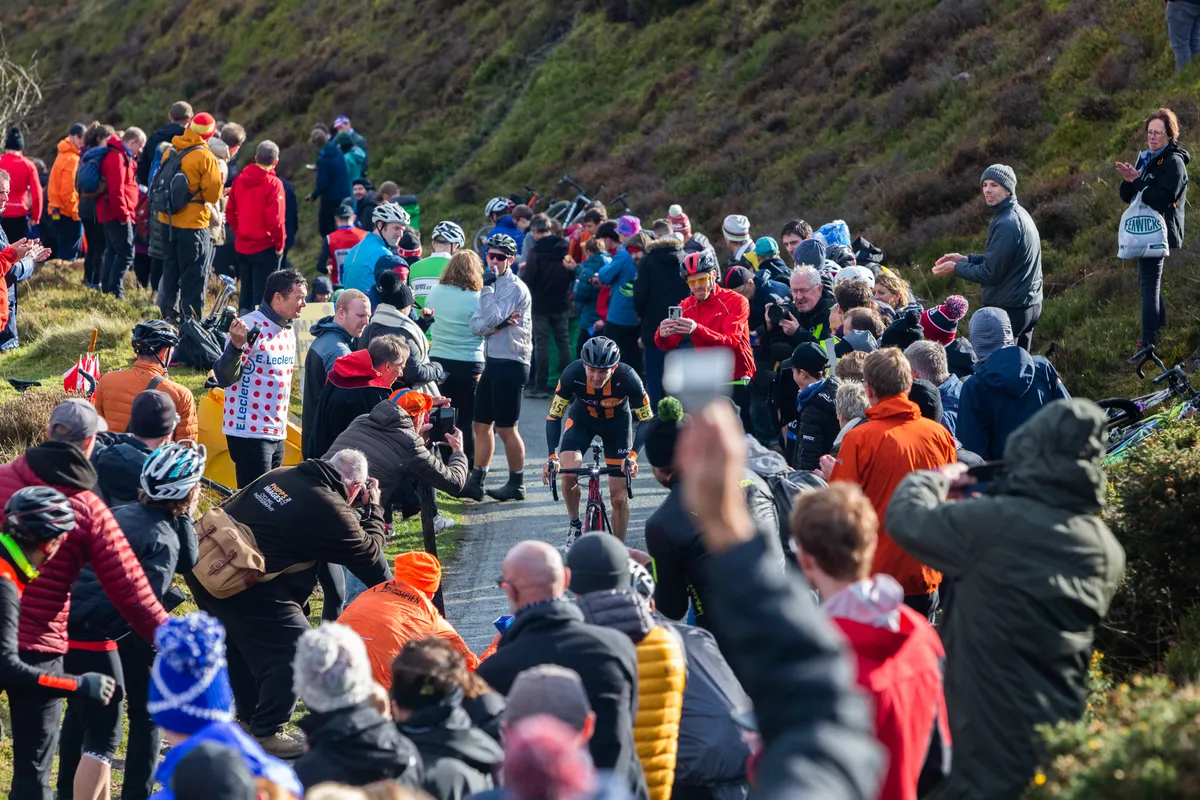
If you compete in short cycling races, such as time trials, the study suggests bicarb could improve your performance.
Dr Wilkins says the study indicates the benefit of taking the Maurten Bicarb System for events lasting about five minutes, such as short hill climb time trials.
She adds: “However, the Maurten system is also likely to be of benefit in slightly longer events that are punchy in nature.”
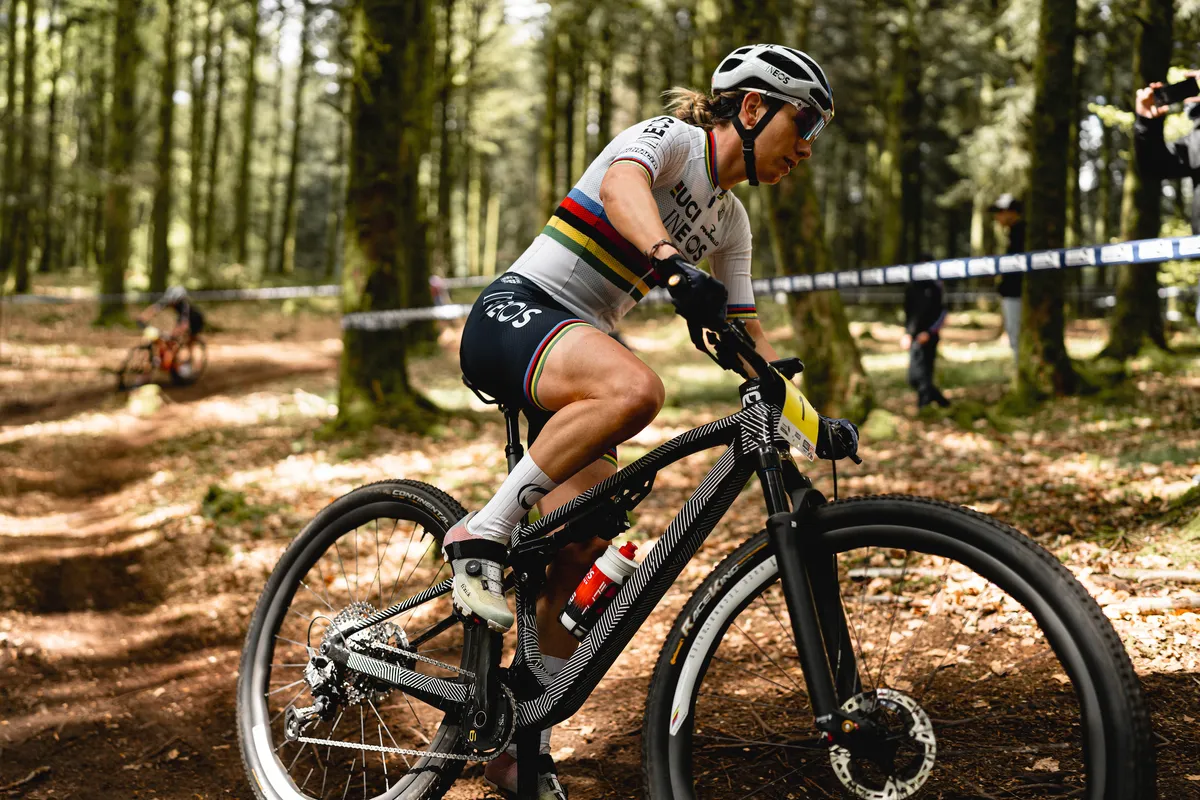
These include cyclocross, criterium, cross-country mountain bike and potentially road racing, according to Dr Wilkins.
She explains: “That's because the sodium bicarbonate helps to buffer metabolites associated with fatigue that are produced when performing short, hard efforts lasting several seconds, up to a few minutes, which are common in these types of cycling disciplines.”
Although few scientists have studied bicarbonate’s effectiveness in longer cycling events, a 2021 trial by Dalle, Koppo and Hespel concluded sodium bicarbonate does improve sprint performance in endurance cycling.
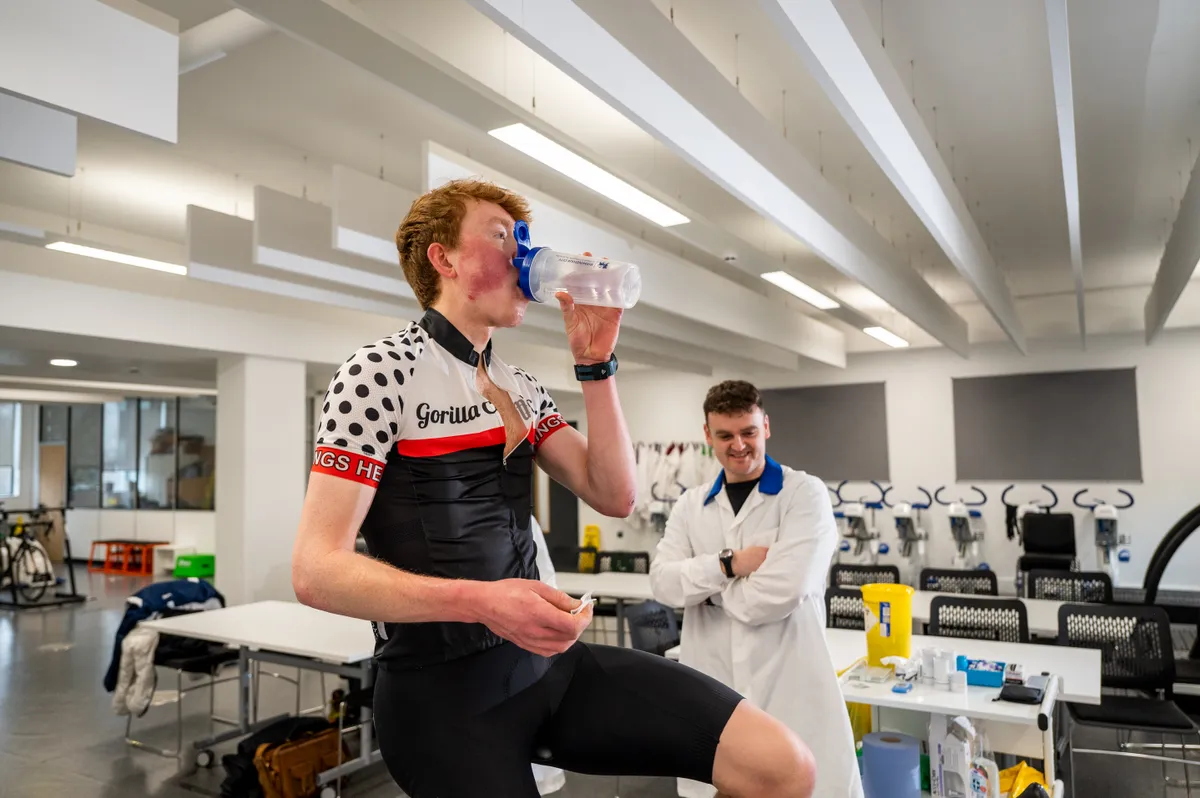
Eleven trained male athletes consumed bicarbonate before and during a three-hour simulated race. Eight of them improved their power output in a 90-second all-out sprint at the end of the race after taking bicarbonate.
The amount of bicarbonate the participants consumed (0.3g/kg body mass) didn’t cause GI problems, according to the study authors.
In order to consume the same amount in a road race, McDermott says a rider would have to drink bottles of bicarbonate dissolved in a maltodextrin energy drink (as was the case in the 2021 study).
Maurten’s Christensson says elevated blood bicarbonate levels were observed four hours after taking the Bicarb System in the City of Birmingham University study.
The amount of bicarbonate the participants ingested was the same as in the 2021 simulated race study.
He says this supports his claim that the supplement works at the end of road cycling stages.
To McDermott, this doesn’t ring true.
In her view, if Lotte Kopecky’s 2021 Strade Bianche win and Biniam Girmay’s 2022 Gent-Wevelgem victory were bicarb-fuelled (as Maurten claims) they would have had to top up mid-race.
Does sodium bicarbonate work for longer distances?
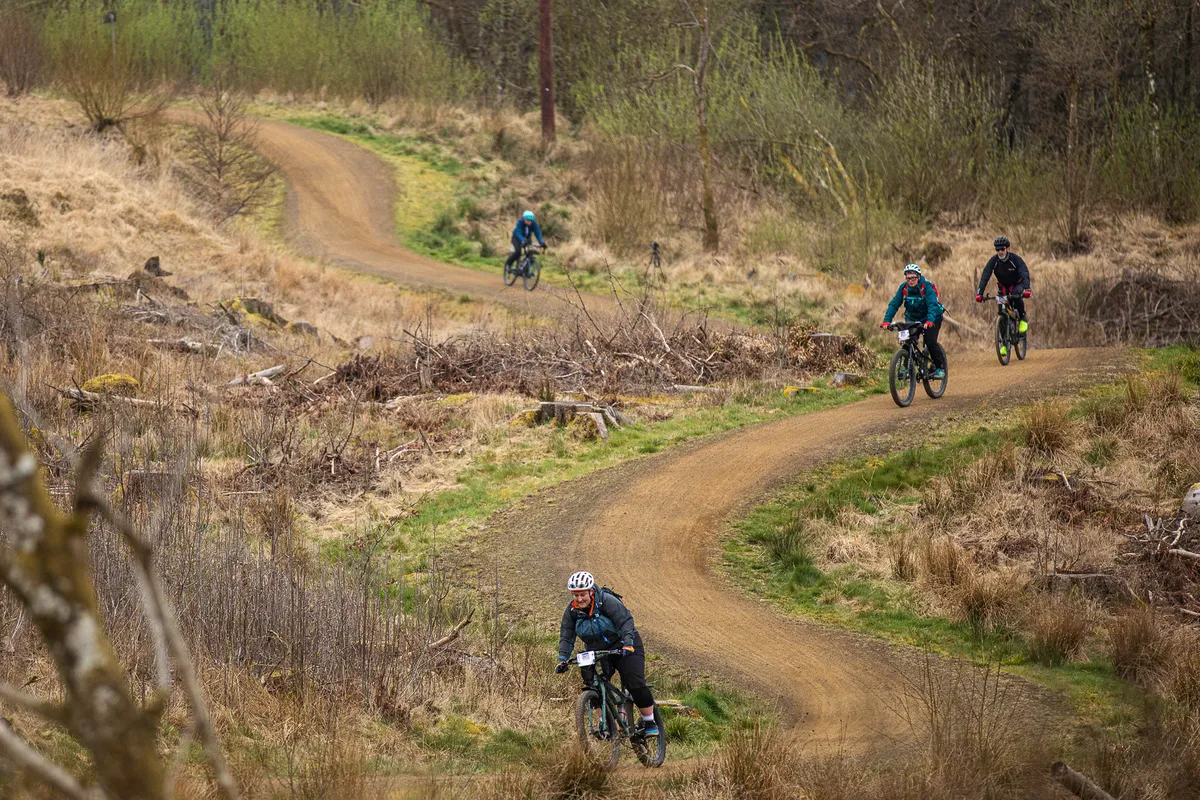
Over longer distances, such as gravel racing and ultra-endurance cycling, the benefits of sodium bicarbonate peter out, according to McDermott.
And Maurten doesn’t claim the Bicarb System works for longer than five-hour races either.
She explains the hydrogen ions that bicarbonate helps buffer in high-intensity cycling are less significant at a steadier pace.
You stand to gain more from adequate carbohydrate intake, proper hydration and possibly caffeine supplementation, she says.
“Bicarbonate might benefit at the beginning of a gravel race if there’s a big climb to get up, but the levels of bicarbonate would have dissipated by the time you get to two hours,” McDermott adds.
Can sodium bicarbonate be used with other supplements?
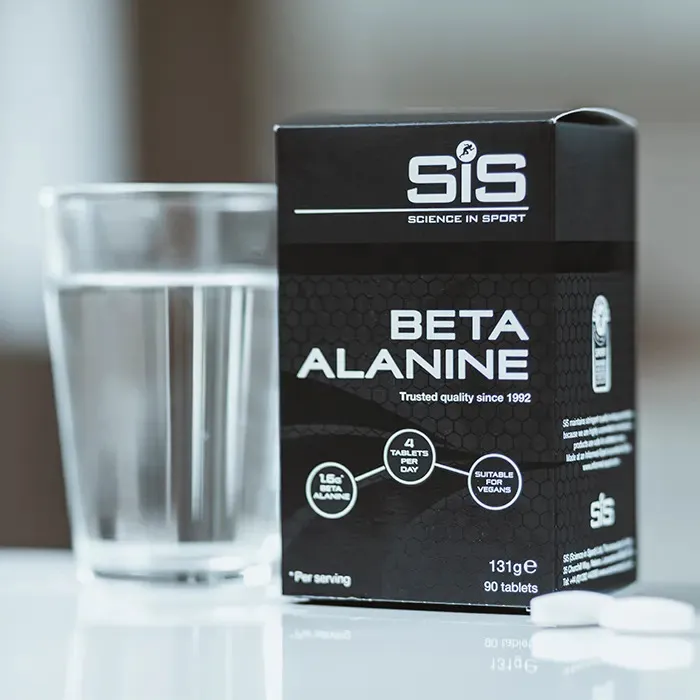
Bicarbonate is one of five performance-enhancing substances the International Olympic Committee permits in competition and training.
Of the other four, caffeine, nitrate and beta alanine are of interest to endurance athletes.
Beta alanine is an intracellular buffer of hydrogen ions, meaning it removes the waste products from the inside of cells.
McDermott says the supplement could dovetail with sodium bicarbonate (an extracellular buffer), producing a dual buffering effect and forestalling fatigue for longer.
Should you take sodium bicarbonate?
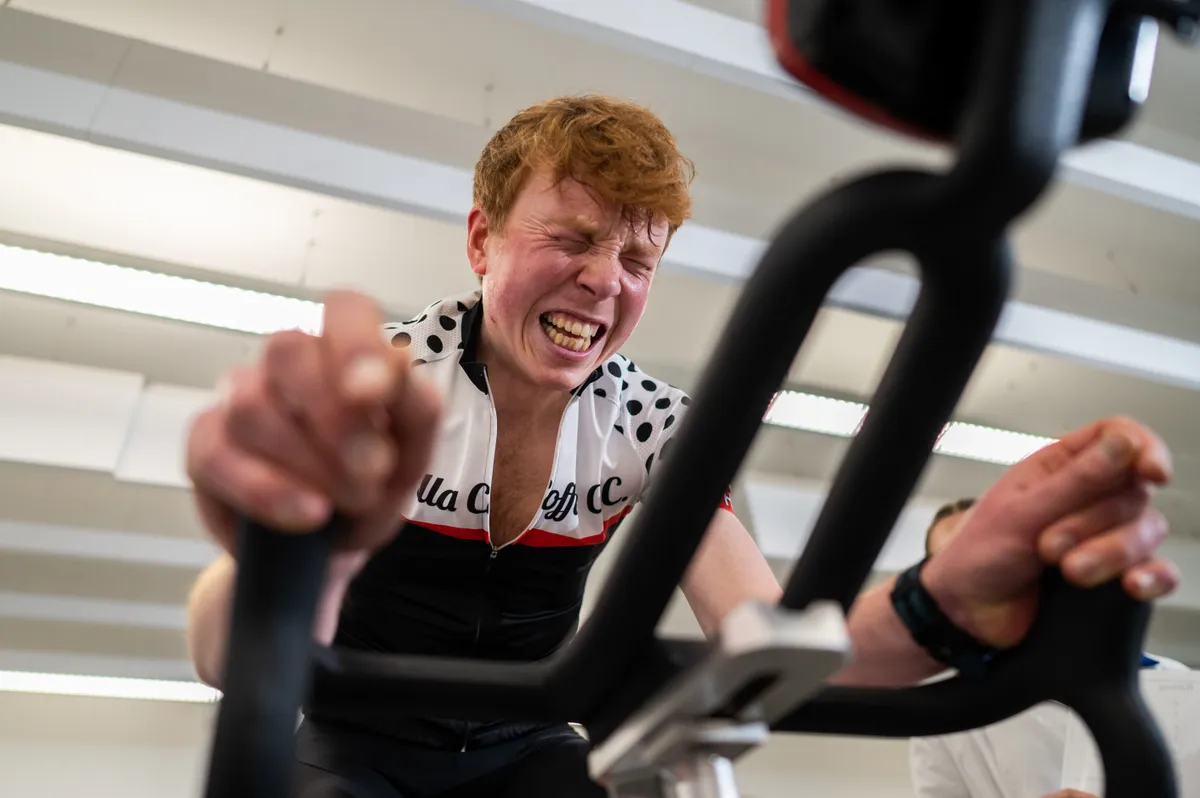
Even Maurten’s head of nutrition, Christensson acknowledges the cost of the Bicarb System could be prohibitive for amateur athletes. Four servings of a medium dose costs £60.
Christensson says that consistent training, effective recovery and everyday nutrition are more cost-effective ways to improve our performance.
He typically sees a one per cent performance benefit in elite athletes from taking bicarbonate.
He says they sometimes take the stuff in training to enable them to do more sets of VO2 max intervals, for example, thereby receiving greater training stimulus.
If you think that’s worth it, McDermott suggests trying a cheaper version of bicarbonate in training.
You’ll have to work out how much to take with how much carbohydrate (which adds absorption) and at what time yourself.
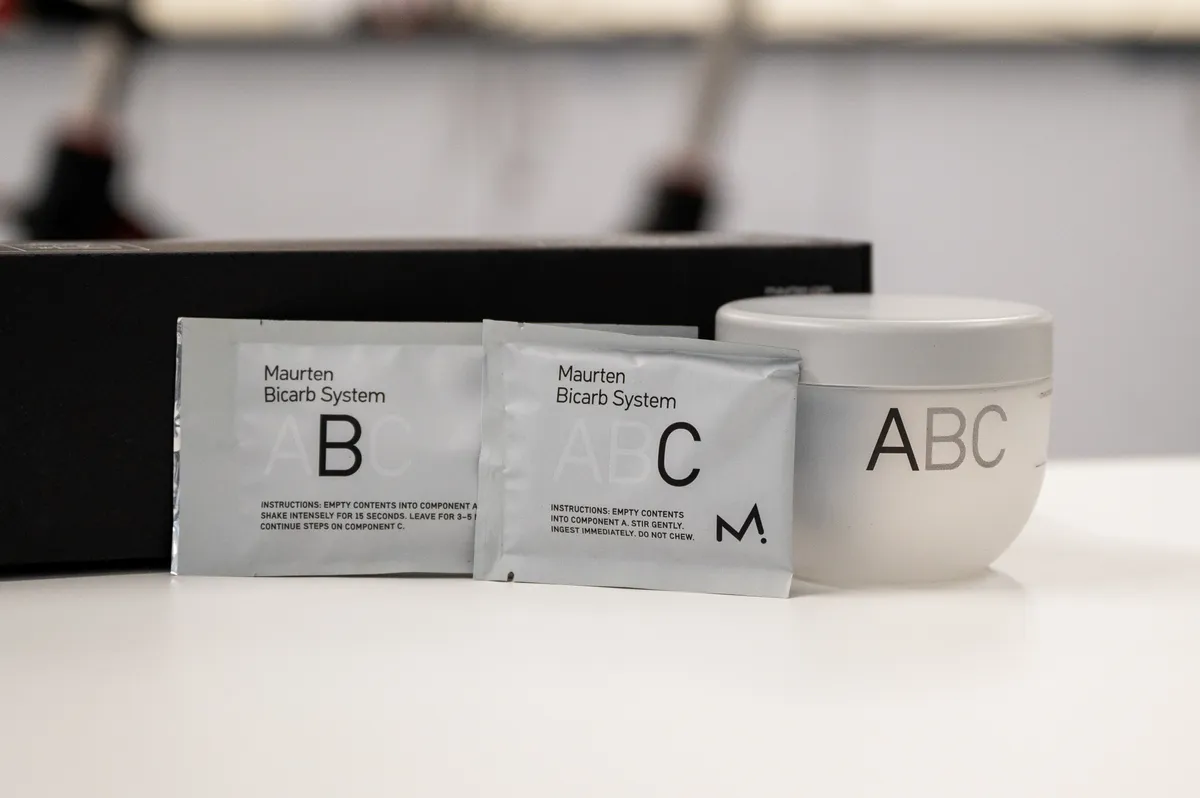
This guidance is included in the price of the Maurten Bicarb System.
“It’s more accessible and convenient, and you pay for that.
“Is it worth the convenience? Probably. It’s like a ready-meal or a Hello Fresh box,” says McDermott.
But the Maurten Bicarb System probably won’t deliver more performance benefits than standard bicarb capsules, according to the elite-level road and gravel racer.
Bicarbonate in its various capsule forms isn’t always a recipe for stomach trouble.
“Many of my athletes take sodium bicarbonate and none of them have experienced GI issues that would stop them taking it.
“But an individualised approach to taking bicarbonate is necessary,” McDermott adds.
What are the downsides of taking sodium bicarbonate?
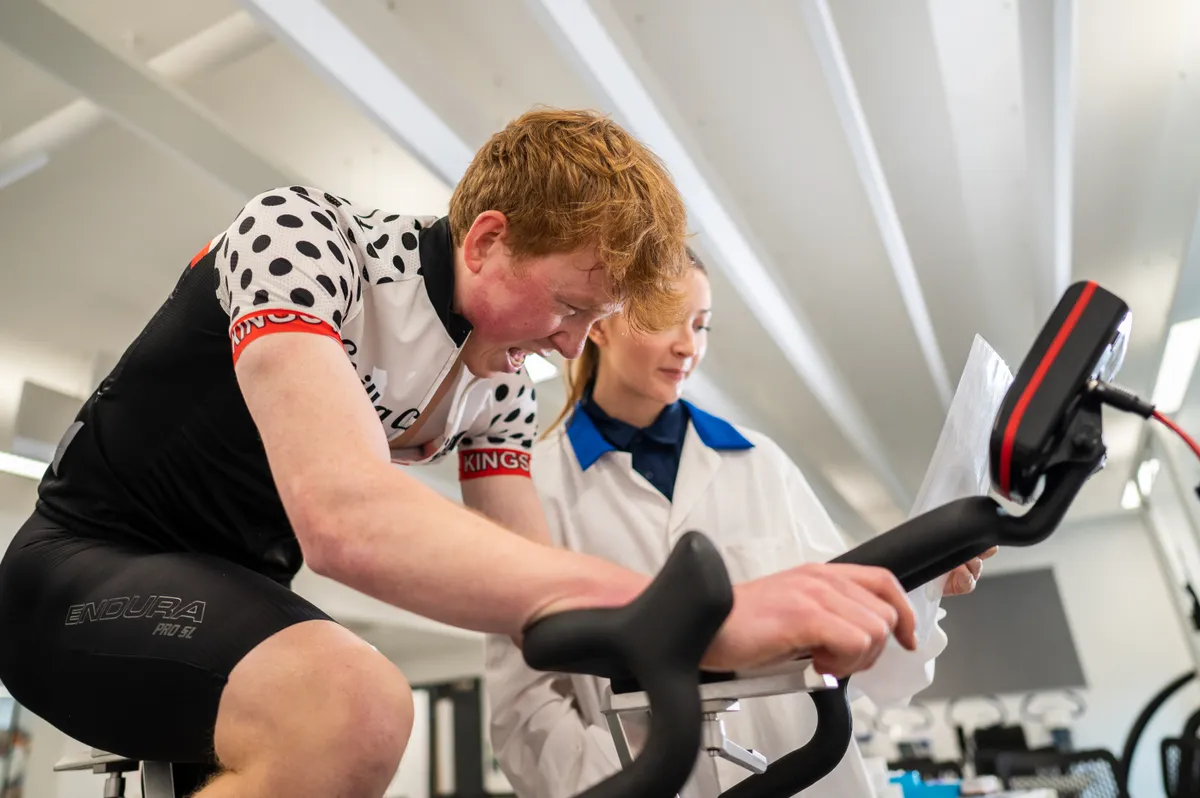
The trial showed the Maurten Bicarb System causes minimal GI discomfort, but are there any other risks of taking sodium bicarbonate?
After losing the Giro d’Italia mountain time trial to Primož Roglič and with it the maglia rosa, Geraint Thomas blamed a lack of “grunt” on taking bicarb.
Would a loss of power have been real or perceived?
Dr Gough says: “This would have been most likely just a perception.
“In my experience, athletes rarely report any different feeling when using bicarbonate in racing, and if anything, report they actually had more ‘grunt’ (especially suffering) on occasions due to the higher intensity they are able to achieve with sodium bicarbonate."
We have contacted Team Ineos Grenadiers’ press office for comment.
McDermott found Thomas’ comments confusing.
“If anything, it should have been the opposite,” she says. “Maybe he felt a lack of benefit from the bicarb rather than the bicarb diminishing his ability to perform.”

Maurten’s Christensson questioned why the 2018 Tour de France winner used a supplement that he felt caused adverse effects.
“That's a big failure from the Ineos team,” he says.
Thomas says he invests in and uses Amp Human PR Lotion. The brand claims you can absorb bicarbonate from the lotion by rubbing it into your skin.
But both Christensson and Dr Gough say this method of administering bicarb doesn’t work.
Christensson does also say that bicarb can make it more difficult to pace an effort on feel.
“With bicarbonate, you can tolerate more lactic acid, so it makes an athlete then perceive the effort as lower than it is.
“And by that, his ability to pace himself is reduced.”
Because bicarb was reducing the burning sensation in his legs, Christensson speculates that Thomas may have been producing more power than he was aware of.
